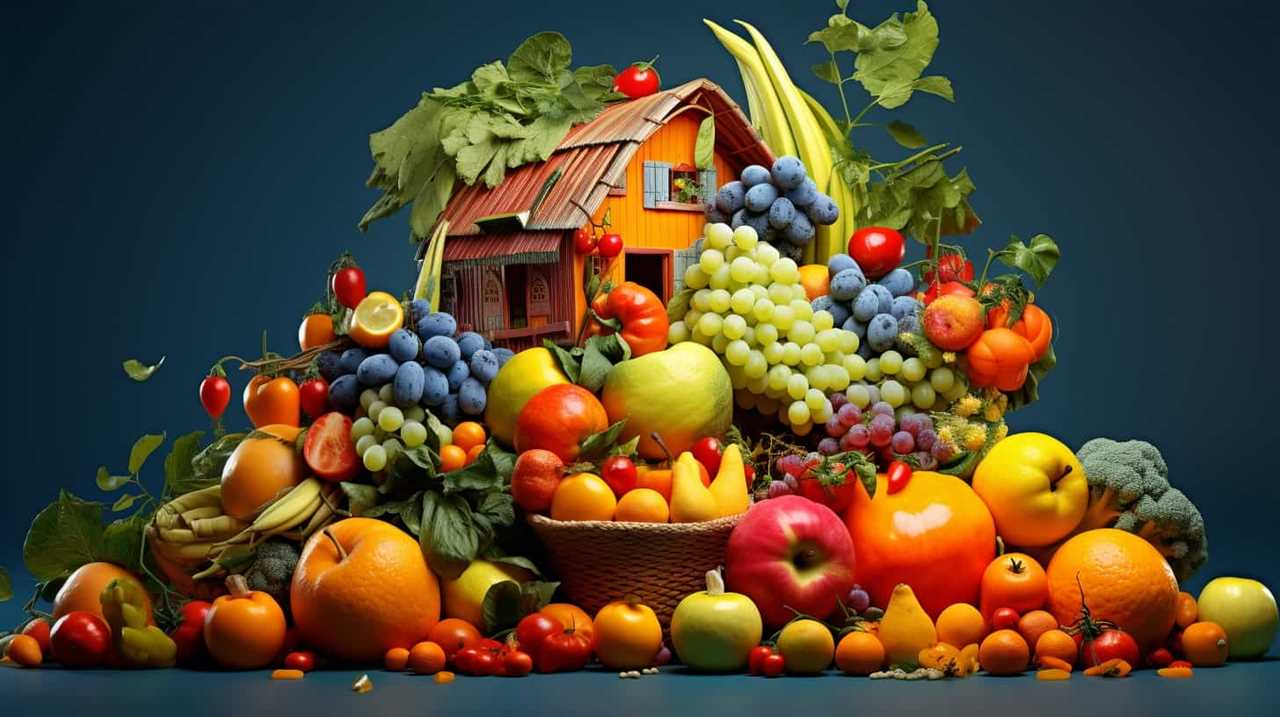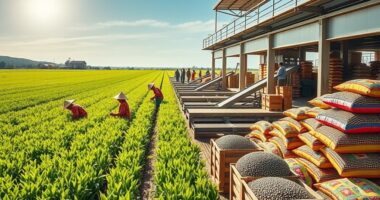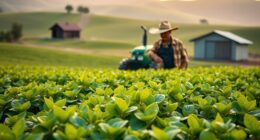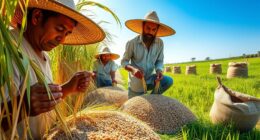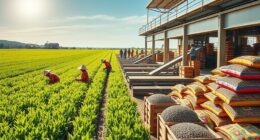Tired of using harmful chemicals and synthetic fertilizers in conventional seed-growing methods? Look no further! We’ve got the scoop on five innovative organic techniques that will revolutionize your commercial seed production.
From soil preparation to natural pest control, crop rotation to organic fertilizers, and even seed saving techniques, we’ve got you covered.
Get ready to break free from the shackles of harmful practices and discover the liberating world of sustainable seed production.
Key Takeaways
- Green manure and mulching improve soil fertility, organic matter, and suppress weeds, creating a fertile and healthy soil environment for seed production.
- Companion planting, biological control methods, and crop rotation are effective techniques for pest and disease control in commercial seed production.
- Proper seed storage, isolation techniques, and meticulous record-keeping are essential for successful seed saving and maintaining seed integrity.
- Careful seed selection, evaluation, and prioritization of high-quality parent plants with desirable traits contribute to the production of high-quality seeds for commercial use.
Soil Preparation
How can we effectively prepare the soil for commercial seed production using organic techniques?
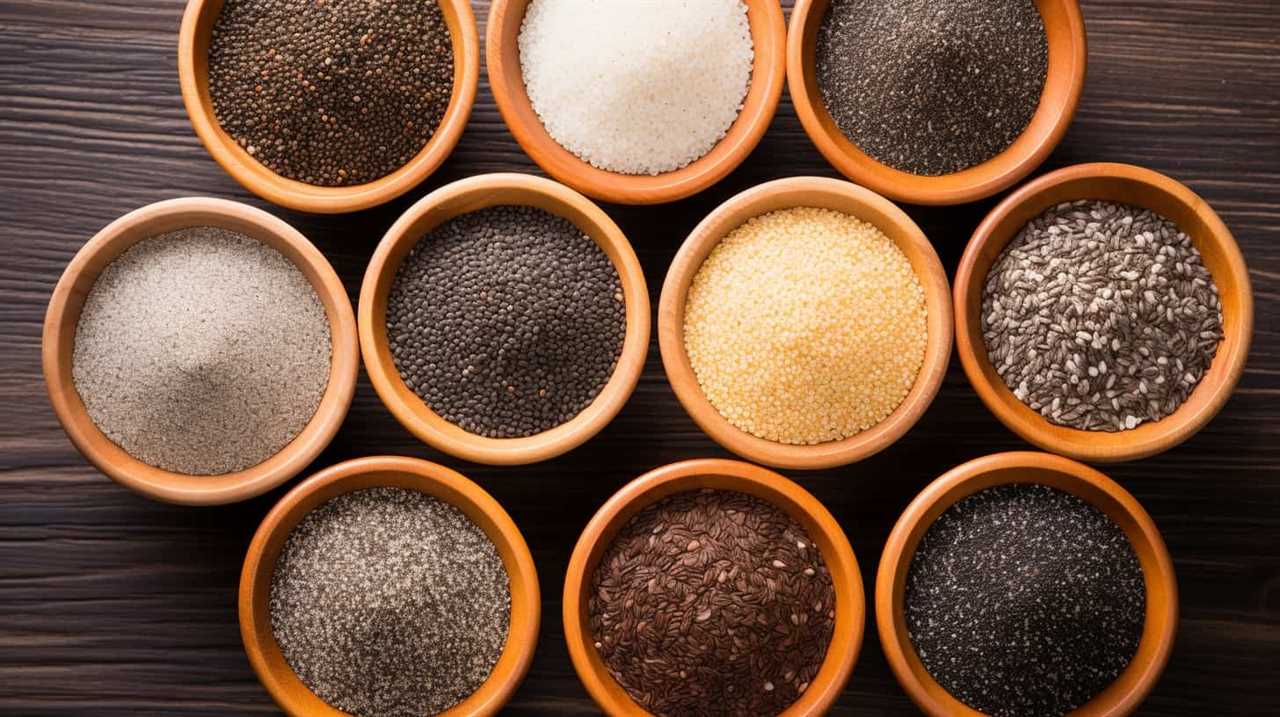
When it comes to soil preparation, two key practices that are essential for organic seed production are the use of green manure and mulching.
Green manure refers to the practice of growing specific cover crops, such as clover or vetch, and then incorporating them back into the soil before planting the commercial seeds. This helps to improve soil fertility, increase organic matter, and suppress weeds.
Mulching, on the other hand, involves covering the soil surface with a layer of organic material, such as straw or wood chips. This helps to conserve soil moisture, prevent weed growth, and regulate soil temperature.
Together, these techniques create a fertile and healthy soil environment, promoting optimal seed germination and growth.
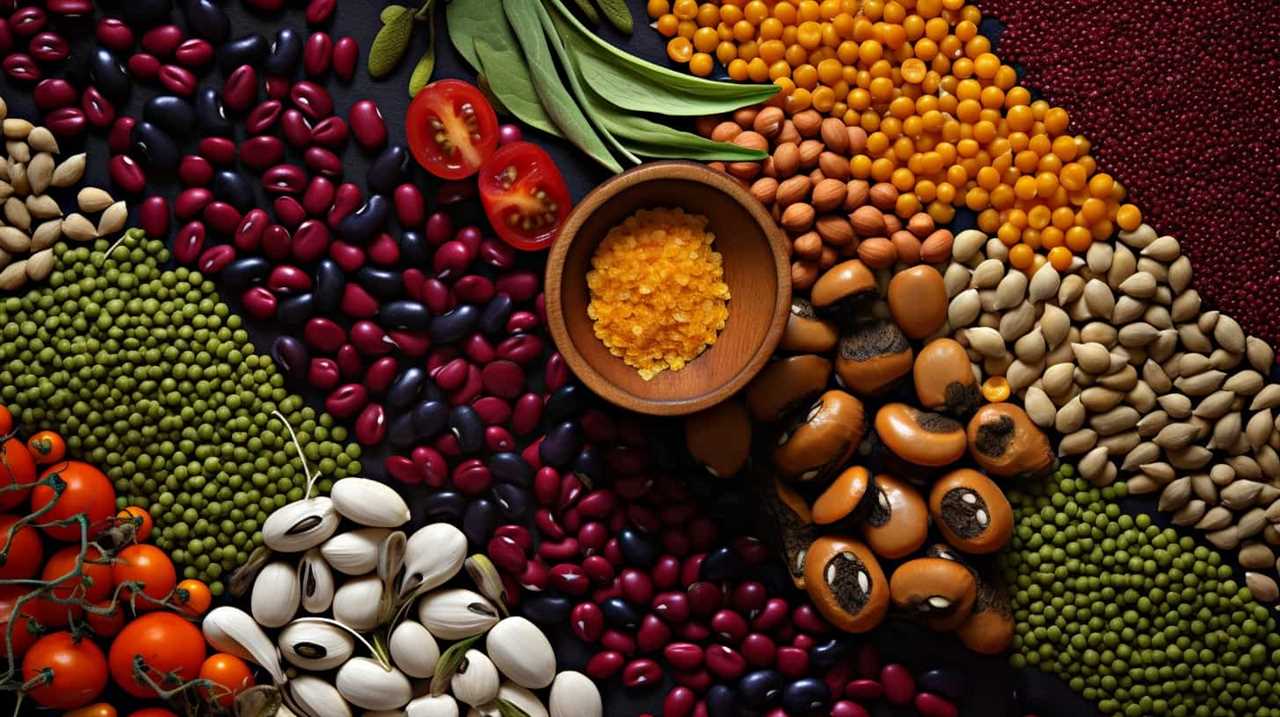
Natural Pest Control
For natural pest control in commercial seed production, we rely on the use of beneficial insects to manage pests. Companion planting is one effective technique we employ. By planting certain crops together, we create a natural balance that deters pests.
For example, marigolds can be interplanted with vegetables to repel nematodes and other harmful insects. Additionally, we utilize biological control methods. This involves introducing beneficial insects, such as ladybugs and lacewings, into the field to prey on pests. These natural predators help to control pest populations without the need for harmful chemical pesticides.
We carefully select and release these insects at the appropriate times to ensure maximum effectiveness. By implementing these natural pest control techniques, we’re able to maintain a healthy and balanced ecosystem in our commercial seed production.
Crop Rotation
To continue promoting a healthy and balanced ecosystem in our commercial seed production, we implement crop rotation techniques.
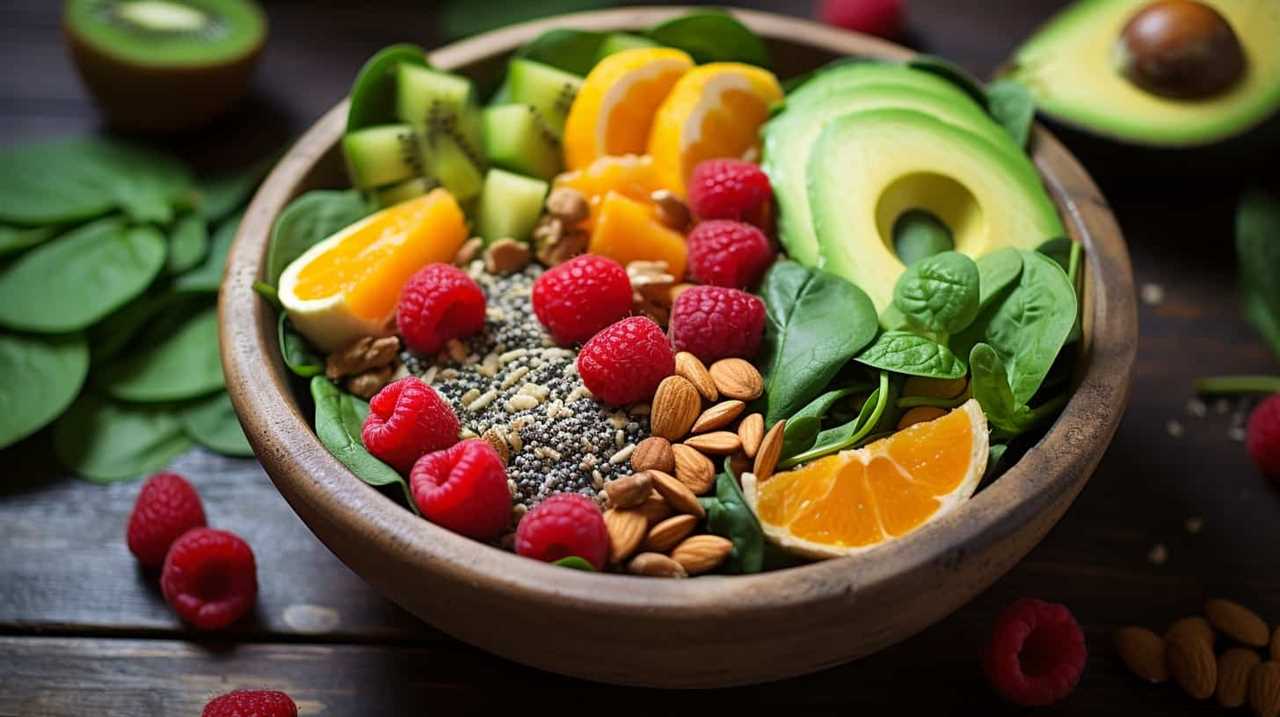
Crop rotation involves systematically changing the crops grown on a particular piece of land over time. This practice helps to prevent the build-up of pests and diseases, and also promotes soil fertility and structure.
Intercropping is one important aspect of crop rotation where different crops are grown together in the same field. This method helps to maximize the use of space and resources, reduces weed growth, and enhances biodiversity.
Another technique we employ is the use of cover crops, which are planted between cash crops to protect the soil from erosion, improve soil health, and suppress weeds.
Organic Fertilizers
We incorporate organic fertilizers into our commercial seed production to enhance soil fertility and promote healthy plant growth. Organic fertilizers, such as nutrient-rich compost, are essential in nourishing the soil and providing plants with the necessary nutrients for optimal growth. These fertilizers are derived from natural sources and are free from synthetic chemicals, making them a sustainable and environmentally friendly choice.
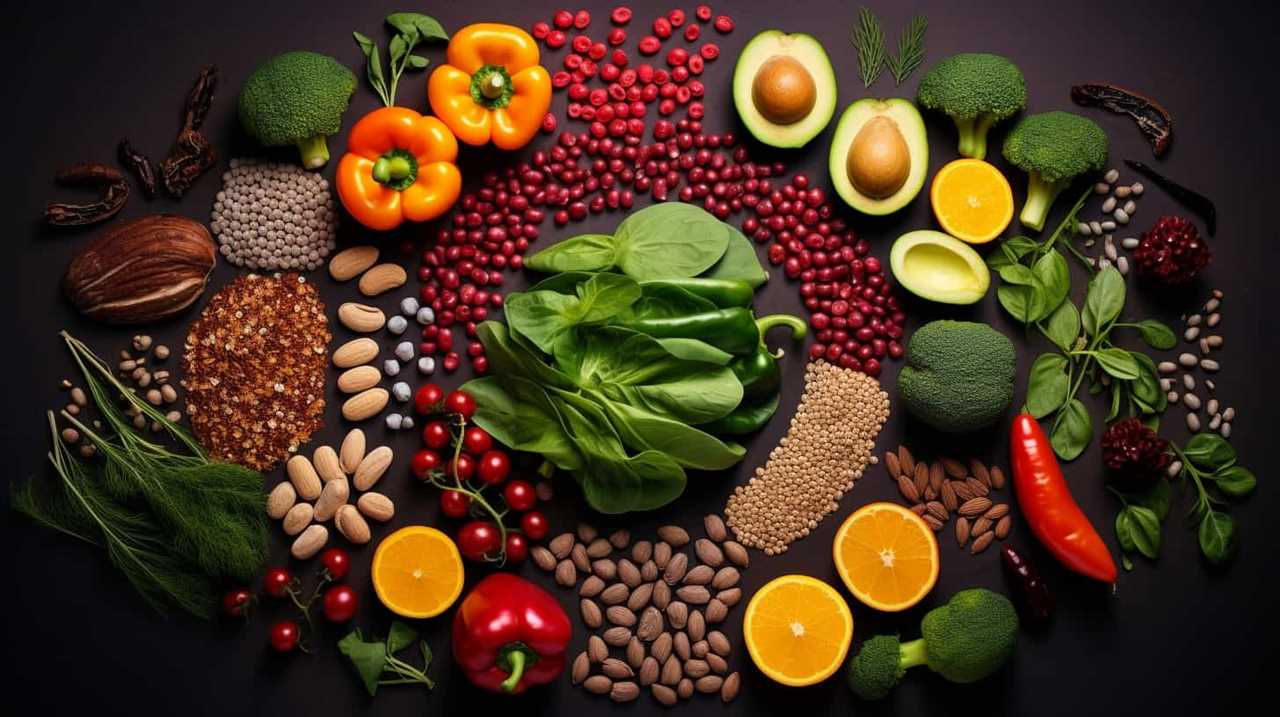
Organic fertilizers not only provide essential nutrients to plants but also support the growth of beneficial soil microorganisms. These microorganisms play a crucial role in breaking down organic matter and releasing nutrients in a form that plants can readily absorb. By promoting the growth of these microorganisms, we ensure a healthy and balanced soil ecosystem that contributes to the overall vitality of our crops.
In our commercial seed production, we carefully select and apply organic fertilizers based on the specific nutrient needs of each crop. This meticulous approach allows us to provide the ideal conditions for our plants to thrive, resulting in high-quality seeds that are robust and resilient.
Seed Saving Techniques
Continuing from our discussion on organic fertilizers, let’s explore the seed saving techniques we employ in our commercial seed production.
- Proper seed storage: We understand the importance of storing seeds in optimal conditions to maintain their viability. We keep our seeds in cool, dry environments, away from direct sunlight and moisture. This helps extend their shelf life and ensures that they remain viable for future use.
- Selecting heirloom varieties: We prioritize the use of heirloom varieties in our seed saving process. These varieties have been passed down through generations and possess unique traits and flavors. By saving seeds from heirloom plants, we contribute to preserving biodiversity and the rich history of traditional crops.
- Careful isolation techniques: To maintain the integrity of our seed stock, we take precautions to prevent cross-pollination. This involves carefully isolating different varieties to avoid unwanted hybridization. By implementing these techniques, we ensure that our seeds remain true to their original characteristics, allowing growers to cultivate plants with reliable traits.
Conclusion
In the vast field of commercial seed production, organic techniques offer a bountiful harvest of benefits. Like a wise gardener tending to their crops, we prepare the soil, ward off pests naturally, rotate our crops, and nourish them with organic fertilizers.

And just like saving precious seeds for future growth, we save our environment from harmful chemicals. By embracing these organic methods, we cultivate not only high-quality seeds but also a sustainable future for our planet.
